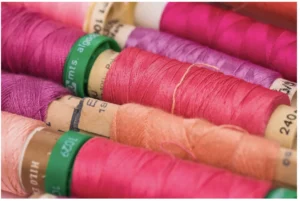As the global apparel market evolves, strategic partnerships with manufacturers are becoming crucial for brands looking to expand their production capabilities while maintaining quality and efficiency. India, with its robust textile heritage and modern manufacturing capabilities, presents a unique opportunity for U.S. clothing brands aiming to diversify their production and tap into rich resources and skilled craftsmanship.
The Indian Advantage in Clothing Manufacturing
India has long been a powerhouse in textile production, boasting an extensive network of skilled artisans and modern factories that are well-equipped to handle demands ranging from high-volume orders to high-end fashion. The integration of traditional techniques with contemporary technologies allows Indian manufacturers to offer a broad spectrum of textile products, from basic cotton fabrics to intricate embroideries and sustainable materials.
The country’s commitment to the textile industry is supported by favorable government policies, including subsidies and export incentives, which further enhance the competitiveness of Indian clothing manufacturers on the global stage. Additionally, India’s strategic location serves as a logistical advantage, facilitating easier and more cost-effective shipping routes to major U.S. ports.
Tailoring Success with Indian Partners
Forging relationships with Indian manufacturers means entering into a partnership that values flexibility, innovation, and responsiveness. These manufacturers are known for their ability to quickly adapt to changing fashion trends and consumer demands, making them ideal partners for U.S. brands that need to stay ahead in a fast-paced industry.
Moreover, many Indian manufacturers have embraced sustainable and ethical production practices, responding to the global demand for environmentally friendly and socially responsible production. Partnering with these manufacturers not only aligns with corporate sustainability goals but also caters to the growing consumer preference for ethical clothing.
Navigating Challenges Together
While the benefits are compelling, navigating the complexities of international manufacturing requires careful planning and execution. This includes understanding cultural nuances, local business practices, and regulatory requirements, which can vary significantly across India’s diverse states. However, with the right local partner, U.S. brands can effectively manage these challenges and turn them into opportunities for growth and innovation.
Why Partner with Us for Your Manufacturing Needs?
Choosing us means more than just gaining access to India’s top clothing manufacturers. It means having a partner who understands your business goals and is ready to help you achieve them. Our expertise in navigating the Indian market, combined with our commitment to quality and sustainability, makes us the perfect ally for U.S. brands looking to expand their manufacturing base. With us, you gain a strategic advantage in a competitive industry, ensuring that your venture into Indian manufacturing is smooth, efficient, and profitable.
Reach out today and discover how we can help transform your clothing production needs into a cornerstone of your business success.
FAQs
- What makes India a preferred destination for clothing manufacturing?
India offers a unique blend of modern manufacturing technologies, skilled labor, and rich textile traditions, providing high-quality and diverse textile products. - How cost-effective is manufacturing in India?
Due to lower labor costs and supportive government policies, manufacturing in India can significantly reduce overall production expenses without compromising on quality. - Can Indian manufacturers meet fast fashion demands?
Yes, Indian manufacturers are equipped to handle quick turnarounds and adapt to rapid changes in fashion trends, making them suitable for fast fashion models. - What are the sustainable practices adopted by Indian manufacturers?
Many manufacturers in India now use organic materials, reduce water consumption, and practice waste minimization to meet global sustainability standards.


